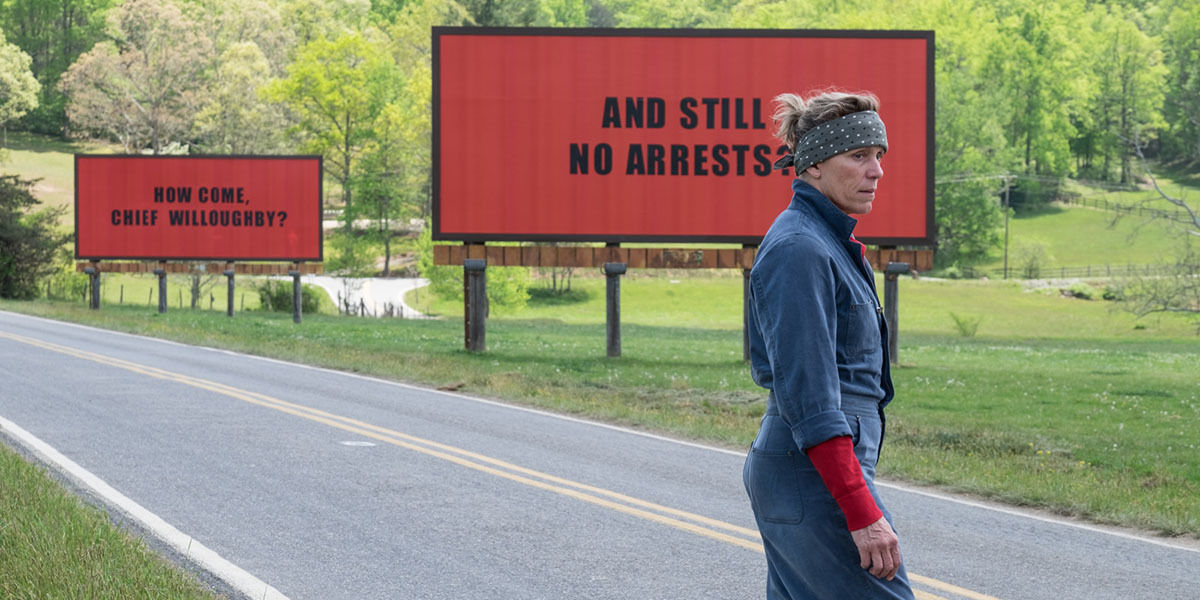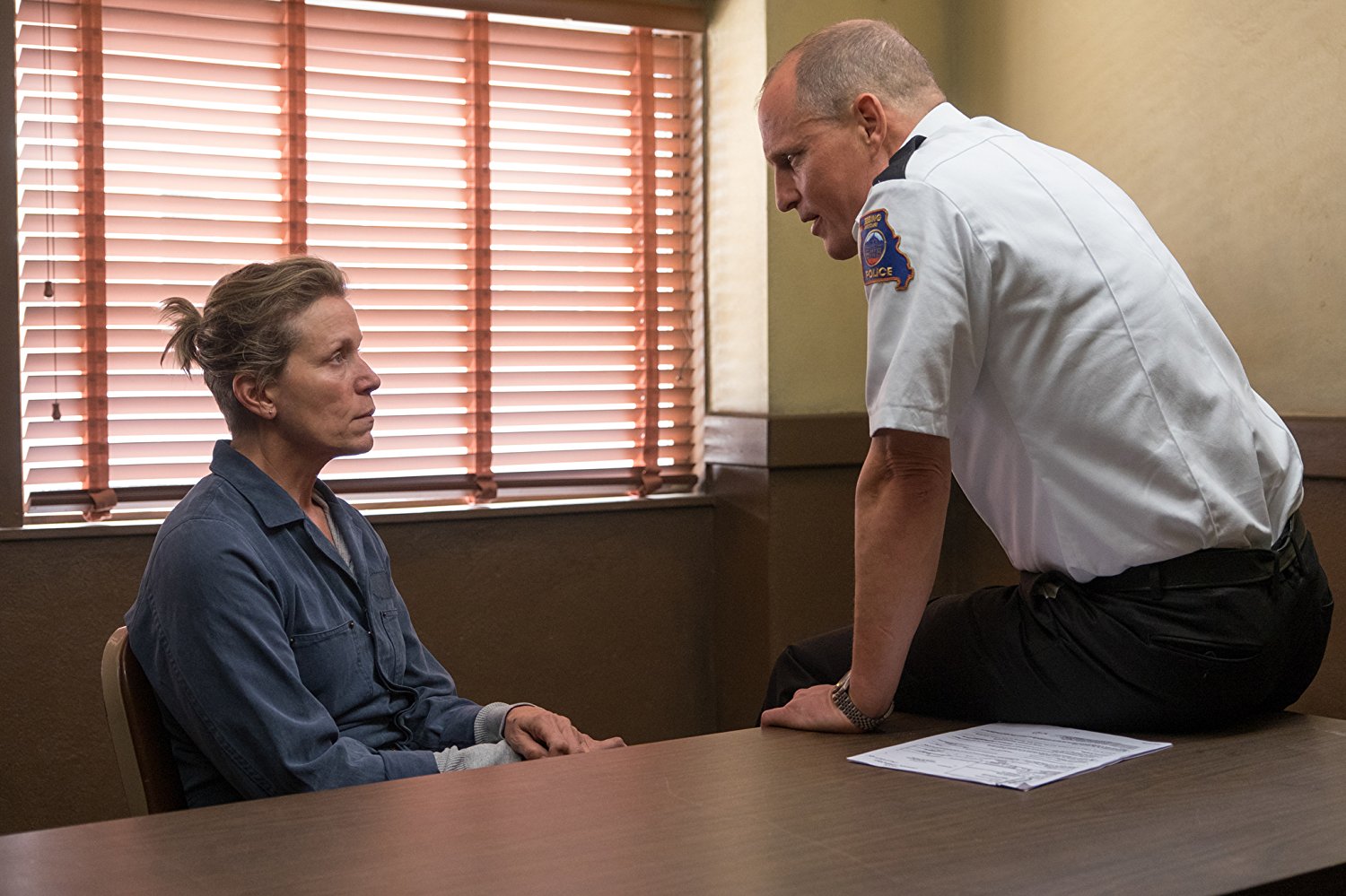Grade: A
Basically: An extraordinarily well written film about messed up people who redeem themselves in the worst possible ways for all the right reasons.
Allow me to spoil this review (but not the movie) for you: Every time I think about Three Billboards Outside Ebbing, Missouri, I breathe deep and say, “Damn, what a good movie.” The fact Frances McDormand is phenomenal as Mildred Hayes or that Martin McDonagh wrote and directed the film with grace are only the starts of the conversation. Everything about Three Billboards is so tragically beautiful, wounded, broken, true. It’s affecting and emotionally demanding…and damn, it’s a good movie.
“Everything about Three Billboards is so tragically beautiful, wounded, broken, true. It’s affecting and emotionally demanding…and damn, it’s a good movie.
Mildred Hayes and her son Robbie (Lucas Hedges) are suffering in the aftermath of the rape and murder or their daughter and sister, Angela (Kathryn Newton). Their pain is a physical presence on the screen; we see it in facial ticks and in sudden bursts of anger. That pain is worsened by the apathy of Police Chief Willoughby (Woody Harrelson) and the officers on the investigation, especially the resident asshole and supreme mama’s boy Dixon (Sam Rockwell). Willoughby is dying (the fast way) and Dixon is such a racist, sexist, homophobic bastard that he’s hogtied by his own hate. When do cops like these have the time to care about the girl whose body was burned before she died? That’s the question Three Billboards Outside Ebbing, Missouri answers. That question is also why Mildred uses all her money to rent three billboards, to remind the Ebbing Police Department that their personal struggles cannot usurp the good of the people in their town.

#1: RAPED WHILE DYING.
#2: AND STILL NO ARRESTS?
#3: HOW COME, CHIEF WILLOUGHBY?
Three Billboards is built like a western—Mildred is similar to the Clint Eastwood character in Hang ’Em High—but it morphs into a revenge film. Imagine John Wick as a small town mother who rages rather than kills and still won’t be stopped. Finally, in the closing moments, the film feels like a vigilante hero origin story…but in ways you won’t expect. When I think about it, even Mildred’s haircut is reminiscent of a Samurai’s topknot; samurai films are very much like westerns, filled with vengeance and honor, death and redemption.
“You’ll leave the theater anticipating the awards it’s going to win this season, and you won’t have any arguments about it.”
Along the way to vengeance or redemption, McDonagh uses the tragedy of Angela’s death, the apathy of the town, and Mildred’s need for justice to dismantle or expose the stereotypes and foibles of society. The misperception that “dysfunctional” means there’s a lack of love in a family, contrasts with a town clergy who are more concerned with the appearance of propriety rather than true goodness. (Sound familiar? Think of Roy Moore). The folks in Ebbing, Missouri are racist and ableist and misogynist and their base humanity allows us to question our own treatment of each other. Subjugation and violence are flipped in every karmic way possible to illustrate that people who feel bad about themselves often try to feel better by abusing others. The more time they spend standing on someone else’s back the more other people want to knock them down—if we stand on enough people’s backs for long enough we build an army against ourselves. (Sound familiar?) This theme plays out on multiple levels in life and in Three Billboards.

It takes a village to create a film this strong. Beyond the gifted production team, Woody Harrelson, Sam Rockwell, Caleb Landry Jones, and Peter Dinklage all stand shoulder-to-shoulder with McDormand’s performance and Clarke Peters provides the perfect deus ex machina. Harrelson’s Willoughby is a good man with a foul mouth in a bad situation—his compassion may actually be too strong. In Dixon, Rockwell creates a character you’d rather keep hating all the way through the story but can’t. Peter Dinklage is vulnerable and lovely, while Caleb Landry Jones’ snark cannot hide the tenderness of his heart.
All I can say is: Bravo.
In the end: Damn, Three Billboards Outside Ebbing, Missouri is such a good movie. You’ll leave the theater anticipating the awards it’s going to win this season, and you won’t have any arguments about it.



